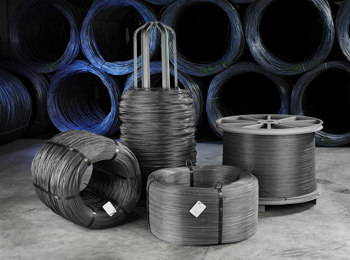The Essential Guide to Chemical Rubber Boots
Chemical rubber boots serve as a crucial component of personal protective equipment (PPE) for individuals who work in environments where exposure to hazardous substances is a concern. These specialized boots are designed to provide an effective barrier between the skin and harmful chemicals, ensuring safety and comfort during tasks that involve such dangerous materials.
Understanding Chemical Rubber Boots
Chemical rubber boots are typically made from high-quality synthetic materials that offer robust resistance against various chemicals, oils, and solvents. The most commonly used materials include natural rubber, PVC (polyvinyl chloride), and neoprene. Each type has unique properties, making them suitable for different applications and environments.
Natural rubber is known for its flexibility and comfort, making it ideal for tasks that require prolonged standing. However, it may not be as resistant to certain chemicals as synthetic options. PVC is lighter and more cost-effective, providing decent protection against many chemicals, while neoprene offers excellent resistance to a wide range of substances, along with good insulation properties.
Key Features
1. Chemical Resistance The primary function of chemical rubber boots is to protect against chemical spills and exposure. Different types of rubber boots offer varying levels of resistance to specific chemicals. It's essential to check the manufacturer’s specifications to ensure that the boots are appropriate for the chemicals being handled.
2. Comfort Many manufacturers design these boots with ergonomic features to ensure comfort during extended wear. Cushioned insoles, moisture-wicking linings, and adjustable closures can help users maintain comfort throughout their work shifts.
3. Durability Given that they are often used in challenging environments, chemical rubber boots are built to withstand rigorous conditions. Reinforced seams and puncture-resistant soles contribute to their longevity, making them a wise investment for any business concerned with safety.
4. Slip Resistance Due to the potentially slippery surfaces encountered in chemical handling jobs, many rubber boots come equipped with slip-resistant soles. These provide excellent traction, helping to prevent falls and accidents during critical tasks.
chemical rubber boots

5. Ease of Cleaning One significant advantage of chemical rubber boots is their ease of cleaning. Since they repel water and resist many chemicals, a simple rinse with water or a quick wipe down can keep them in good condition.
Applications
Chemical rubber boots are essential in various industries where chemical exposure is a risk. These include
- Chemical Manufacturing Workers in this field often handle hazardous substances daily and require sturdy protective wear. - Agriculture Farmers and agricultural workers frequently encounter chemicals such as fertilizers and pesticides, making proper footwear vital. - Laboratories Scientists and technicians need reliable protection when working with various solvents and reagents. - Petrochemical Industry Employees in this sector deal with oil and other damaging chemicals, necessitating tough, chemical-resistant footwear.
Choosing the Right Boots
When selecting chemical rubber boots, several key factors must be considered
- Type of Chemical Identifying the specific chemicals you will be working with will help determine the best material for your boots. Manufacturers often provide compatibility charts for reference. - Fit and Comfort Proper sizing is critical. Boots that are too tight or too loose can lead to discomfort or accidents. - Height Taller boots offer more protection but may be less comfortable for prolonged wear. Consider the typical work environment to choose the right height. - Weight While heavier boots may offer more protection, lighter options can improve comfort and reduce fatigue during long work hours.
Conclusion
In environments where chemicals pose a risk, investing in high-quality chemical rubber boots is essential for safeguarding your health. By understanding the various materials, features, and applications of these boots, workers can ensure they have the right protection for their specific needs. Remember, safety in the workplace starts with the right PPE, and chemical rubber boots are one of the most important elements of that essential gear.
-
Stay Dry in Any Condition with WadersNewsJul.17,2025
-
Elite Performance with Camouflage Combat BootsNewsJul.17,2025
-
Dry and Comfortable with Green Rubber Garden ShoesNewsJul.17,2025
-
Convenient Protection with Foldable RainbootsNewsJul.17,2025
-
Comfort and Protection with Neoprene Work BootsNewsJul.17,2025
-
Brighten Rainy Days with Floral Rain BootsNewsJul.17,2025
-
Safety Wellies: The Ultimate Combination of Protection, Comfort, and VisibilityNewsJun.19,2025











